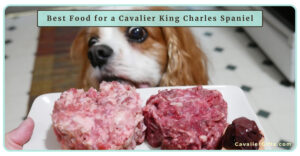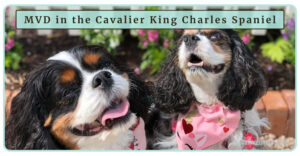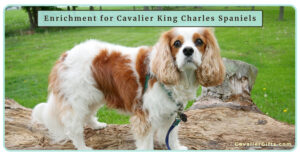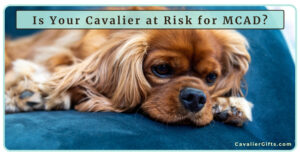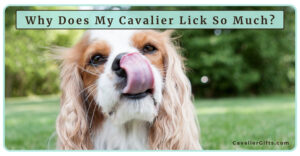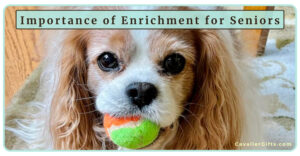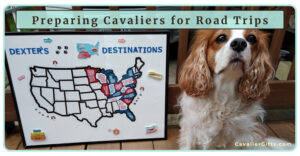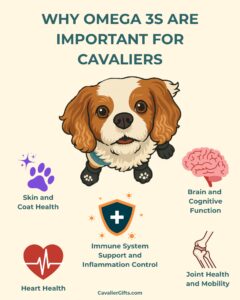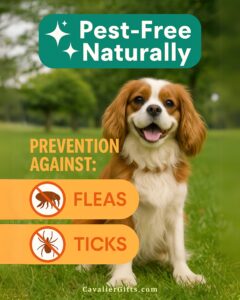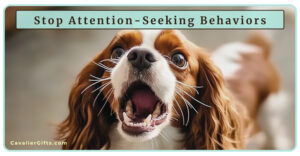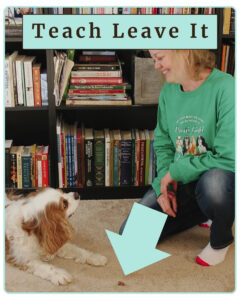MCAD deficiency in Cavalier King Charles Spaniels


Last year, on my Raising Your Pets Naturally blog, I shared information about a relatively new health condition found in Cavalier King Charles Spaniels: Medium-Chain Acyl-CoA Dehydrogenase (MCAD) deficiency. As many Cavalier families know, this breed is already prone to several health issues, and adding another one to the list is upsetting.
MCAD deficiency is a genetic condition that impacts how the body breaks down certain fats for energy. Recent research has found some Cavaliers who have symptoms such as seizures, lethargy, and other health issues may have MCAD.
The initial study that brought this to the general public’s attention focused on a three-year-old male Cavalier who was experiencing seizures and unusual tiredness. After examining his blood and urine, researchers discovered elevated medium-chain fatty acids, pointing to MCAD deficiency. They then sequenced the dog’s genome and identified a specific change in the ACADM gene, which is associated with this condition.
When the researchers tested this genetic variant in 162 Cavaliers, they found that about 23.5 percent of the dogs carried the mutation. This discovery is important because it suggests that MCAD deficiency might be the reason behind the seizures and other symptoms we sometimes see in Cavaliers.
Here are some symptoms to watch for:
- Seizures: Seizures or convulsions can be a key indicator of potential MCAD deficiency.
- Lethargy: Unexplained and prolonged tiredness could be a sign of an underlying issue like MCAD deficiency.
- Intermittent Health Issues: These episodes might include vomiting, decreased energy, or more severe symptoms like seizures.
- Unsteady Gait: Difficulty walking or balance issues could occur during episodes.
- Loss of Appetite: A sudden loss of interest in food might indicate a problem.
- Low Blood Sugar (Hypoglycemia): This can lead to weakness, shakiness, disorientation, and seizures.
- Abnormal Behavior: Changes in behavior, such as irritability or confusion, might be linked to a metabolic disorder.
- Respiratory Distress: In severe cases, dogs might experience difficulty breathing during an episode.
- Frequent Infections: Some dogs with MCAD deficiency may be more prone to infections.
- Neurological Symptoms: Symptoms like circling, head pressing, or lack of coordination could be signs of this condition.
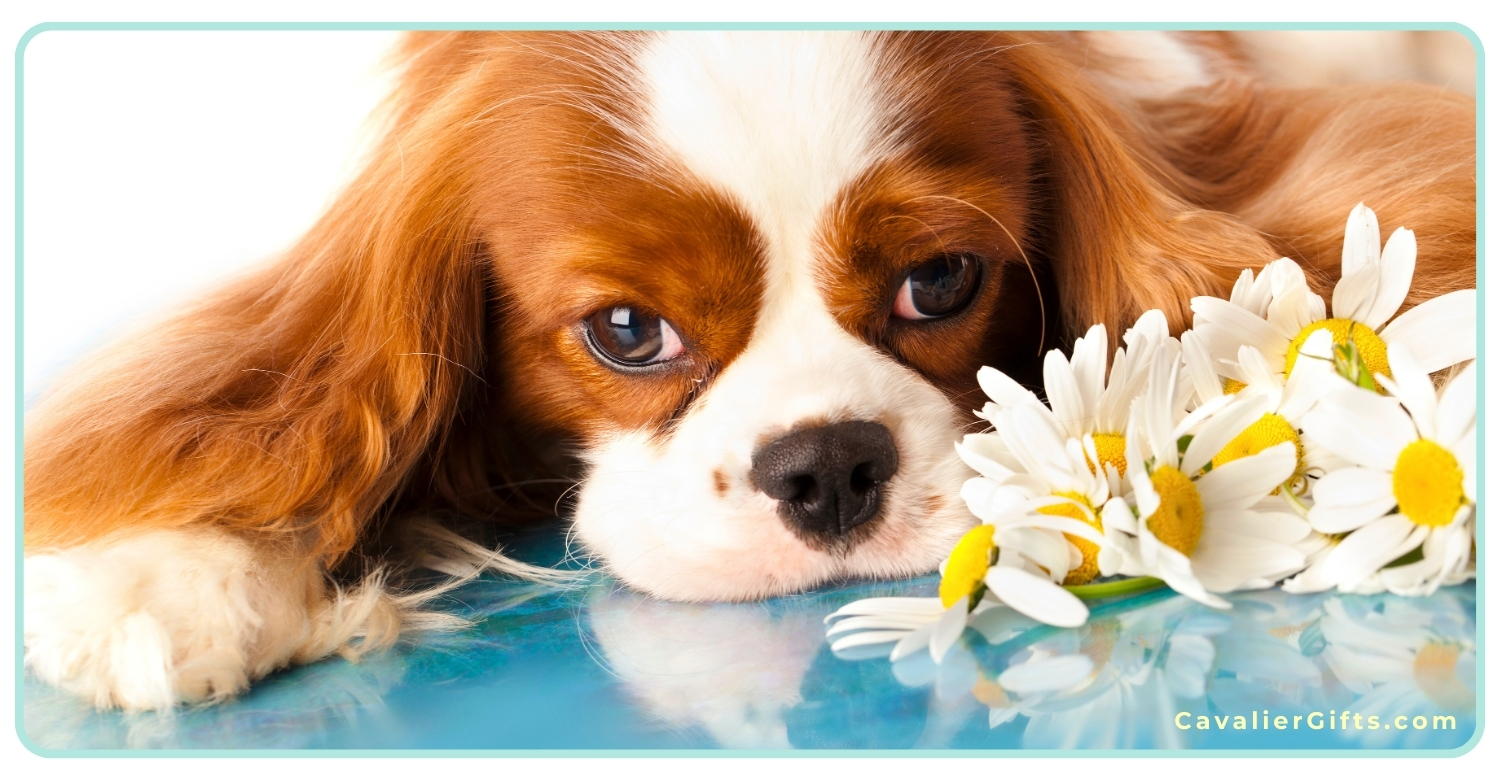
I know, right? A lot of these symptoms are also symptoms of other Cavalier King Charles Spaniel medical issues. While these symptoms can be caused by various factors, it’s important to consider MCAD deficiency, especially if your Cavalier is showing multiple signs.
Consider Getting Your Cavalier Tested for MCAD Deficiency
If you’re concerned about MCAD deficiency and its impact on your Cavalier King Charles Spaniel, getting your dog tested is a straightforward step you can take. The test involves a simple at-home swab, which you can easily order and perform yourself. This can provide valuable insights into whether your Cavalier carries the gene associated with MCAD deficiency.
For those thinking about adding a new Cavalier puppy to their family, it’s encouraging to know that many responsible breeders are proactively testing their breeding pairs and even the grandparents. This testing helps ensure that future puppies are less likely to inherit MCAD deficiency, contributing to healthier generations of Cavaliers.
Testing is a proactive measure that can help you make informed decisions about your dog’s health and well-being. If you’re interested in testing, talk to your veterinarian or reach out to a reputable lab for more information on how to get started.
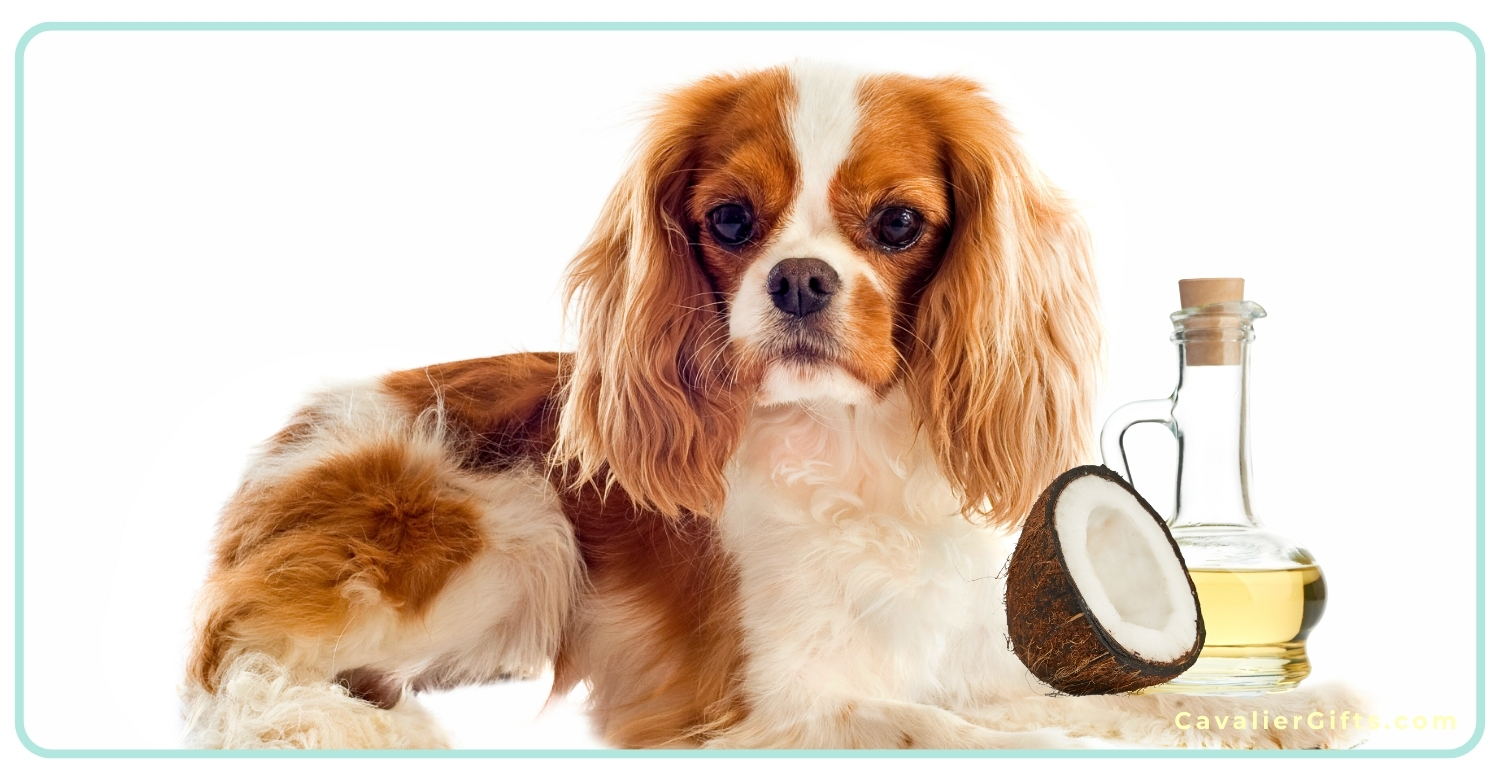
For Cavaliers at risk of MCAD deficiency, diet plays a crucial role. Since these dogs might struggle to break down medium-chain fatty acids (MCFAs), it’s recommended to be mindful of their diet:
- Limit MCTs: Foods high in MCTs, like coconut oil, palm oil, and milk products, including yogurt might need to be limited in dogs with this genetic variant.
- Watch High-Fat Diets: A balanced diet, without excessive fats, is key for Cavaliers with potential MCAD deficiency.
Cavaliers that haven’t been tested for MCAD deficiency should avoid foods high in MCTs. Without knowing their genetic status, it’s best to be cautious to prevent potential health issues like seizures or other symptoms associated with the condition. If your Cavalier has had a diet rich in MCTs for a few years without any of the symptoms listed above, you may consider continuing to feed. However, the test is pretty easy and inexpensive, so it might be just easier and safer to test to know for sure.
The research on MCAD deficiency in Cavaliers is ongoing, and it’s vital for more Cavaliers to be tested. A simple swab test can determine whether your Cavalier carries the gene associated with MCAD. This testing is important not just for your Cavalier’s care, but also for responsible breeding practices to reduce the prevalence of this mutation in future generations. If you test, please contact your Cavalier’s breeder with the results.
Testing for MCADD
As of June, 2024, the latest stats from a Facebook group dedicated to MCAD deficiency in Cavaliers show the following:
- Genetically Affected: 49 dogs (9.78%)
- Clinically Affected: 6 dogs (1.2%)
- Carriers: 238 dogs (47.5%)
- Clear: 214 dogs (42.7%)
These numbers highlight the importance of testing and awareness within our Cavalier community. By staying informed and proactive, we can continue to support the health and well-being of our Cavaliers.
Managing MCAD Deficiency: Diet and Care Tips
If your Cavalier King Charles Spaniel has been diagnosed with MCAD deficiency, managing their condition effectively involves careful attention to their diet and feeding schedule. I would suggest a good heart to heart with your dog’s holistic veterinarian. If your Cavalier does have MCAD deficiency you will need to avoid a high-fat diet and avoid foods high in medium-chain triglycerides (MCTs). Don’t forget to read those ingredient panels on all the foods, treats, and chews you feed your Cavalier.
Although MCAD deficiency is serious in Cavaliers, a good food protocol can help ensure your Cavalier still leads a full and enriched life.
|
|

|

|

Google Ad Below


